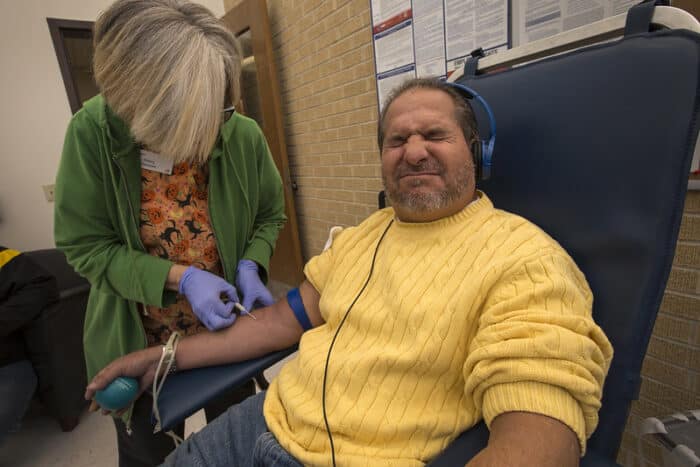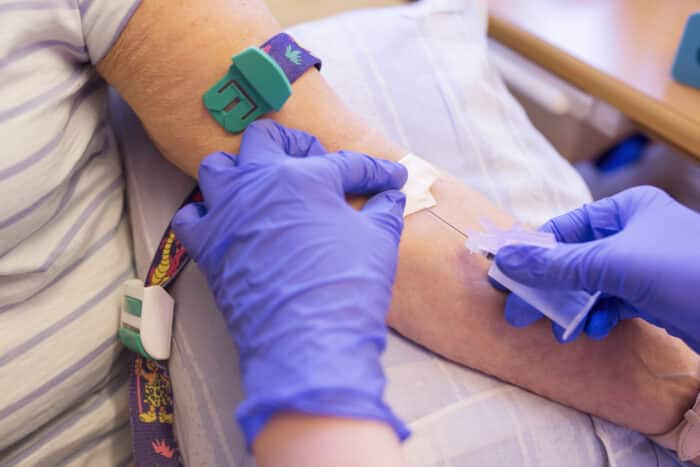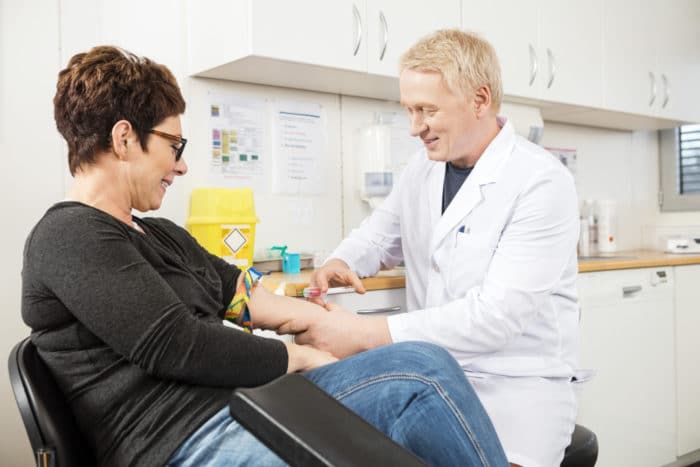Have you ever wondered whether a phlebotomist is the same as a nurse?
It’s a question that often comes up when exploring healthcare careers.
Both phlebotomists and nurses play essential roles in patient care, but they have different responsibilities and training paths.
In this article, we’ll break down the differences between these two professions, shedding light on what sets them apart and why each is essential in the world of healthcare.
So, if you’ve been curious about whether a phlebotomist can be considered a nurse, read on to discover the clear distinctions between these healthcare roles.
Is a Phlebotomist the Same as a Nurse?
We know they might sound synonymous since both of their roles involve drawing blood mainly, but a phlebotomist and a nurse are completely different careers.
Let us see how.
Phlebotomists are specialized healthcare professionals trained to draw blood from patients. Their primary role is to collect blood samples for diagnostic testing, blood donations, or medical procedures.
Phlebotomists need to be skilled in venipuncture (inserting needles into veins) and focus on blood collection techniques, patient comfort, and proper labeling of samples. They often work in settings like hospitals, clinics, and blood donation centers.
Nurses, on the other hand, have a broader role in patient care. They assess and monitor patients’ overall health, administer medications, provide treatments, and offer emotional support.
Nurses typically have more extensive education and training, ranging from licensed practical nurses (LPNs) with one year of training to registered nurses (RNs) with a minimum of two years of education.
They work in various healthcare settings, including hospitals, clinics, and long-term care facilities, and they have a more comprehensive scope of practice compared to phlebotomists.
See: How to Become a Phlebotomist
Is Phlebotomy a Nursing Skill?
Phlebotomy, which means drawing blood from people, is not something only nurses do. It’s a skill that some nurses learn as part of their job.
Phlebotomists are specialists who mainly focus on taking blood, and they get special training for it. However, many nurses, especially those who work in places like hospitals or clinics, also learn how to do phlebotomy during their nursing training.
This helps them take blood from patients when needed to help with their care. So, while phlebotomy isn’t just for nurses, it’s a useful skill that some nurses have to provide more comprehensive care.

Do You Want To Become a Phlebotomist? Check Out Free Phlebotomist Masterclass!
In our masterclass you learn:
- How to be a Phlebotomist faster…in just 2 months!
- Avoid student debt & driving to classes
- #1 thing employers want from Phlebotomists
- How to stand-apart & get a university certificate for a strong resume
Phlebotomist vs. Nurse: Duties
Now that you know how phlebotomists differ from nurses in the general sense, you might be wondering if there are any differences in their duties.
Let us discover.
Phlebotomists:
- Blood Collection: Phlebotomists are experts at taking blood from patients. They mainly focus on collecting blood samples for things like tests or donations.
- Patient Interaction: They directly talk to patients and make sure they feel comfortable while drawing blood.
- Venipuncture: They’re skilled at using needles to draw blood from veins.
- Sample Handling: They pay a lot of attention to how they label and handle blood samples to keep them accurate.
- Specialization: Phlebotomists mainly deal with blood-related tasks and don’t do all the different things nurses do in healthcare.
Nurses:
- Complete Patient Care: Nurses take care of patients in a lot of ways. They assess a patient’s overall health, give medicines, provide treatments, and offer emotional support.
- Different Places: They work in many healthcare settings like hospitals, clinics, nursing homes, and even schools, dealing with various medical needs.
- Education and Training: Nurses have a lot more education and training as compared to a Phlebotomist, and there are different types of nurses with varying levels of expertise, from licensed practical nurses (LPNs) to registered nurses (RNs).
- Wide Range of Tasks: Nurses can do many different healthcare jobs, not just drawing blood.
Also read: How Long Does it Take to Become a Phlebotomist
Conclusion
In conclusion, while both phlebotomists and nurses play vital roles in healthcare, they are not the same. Phlebotomists specialize in drawing blood and ensuring its proper handling, while nurses have a broader scope of responsibilities, including patient care, administering medications, and providing medical assessments.
Understanding the distinctions between these professions is crucial for both healthcare professionals and patients to ensure that the right care is provided at the right time. So, no, a phlebotomist is not a nurse, but both contribute to the well-being of patients in their unique ways.
Related Resources:
- Phlebotomist Requirements
- Day in the Life of a Phlebotomist
- How To Choose Phlebotomist Classes Online?
- Where Can a Phlebotomist Work?
- Phlebotomy Externship
- How Long Does it Take to Get a Phlebotomy Certification?
- How Long is a Phlebotomy Course?
- Phlebotomist Nurse
- Phlebotomist vs CNA
- Phlebotomist Lab Technician
- Therapeutic Phlebotomy
- Certified Phlebotomy Technician
- Cardio-Phlebotomy Technician
- Online Phlebotomy Classes
- Order of Draw Phlebotomy
- Phlebotomy Internship
- 4-Week Phlebotomy Classes Online
Related Articles
-
How to Be Successful in College in 2022 – 7 Simple Tips to Succeed
-
How Do Scholarships Work? Read This First…Truth is Shocking
-
7 Best College Majors 2024: What Should I Major In?
-
How to Choose a College – 10 Things You Must Consider in 2024
-
Why Go to College? Top 13 Benefits for Adult Students in 2022
-
Top 5 Best Alternatives to Community College for 2024








